Filter by
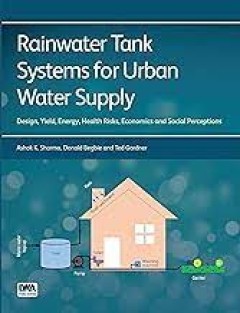
Rainwater Tank Systems for Urban Water Supply Design, Yield, Energy, Health …
Rainwater tank systems have been widely adopted across the world to provide a safe local source of water in underdeveloped rural areas, and as a substitution for mains water for non potable end uses in water stressed urban areas. They also provide flood control in monsoonal climates like Korea or in combined sewer systems like in Germany. The importance of these systems in cities has grown, as …
- Edition
- -
- ISBN/ISSN
- 9781780405360
- Collation
- -
- Series Title
- -
- Call Number
- -
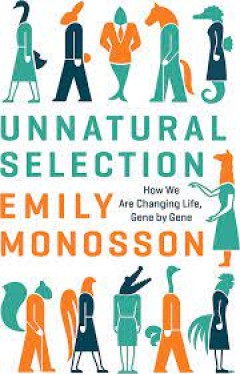
Unnatural Selection: How We Are Changing Life, Gene by Gene
Gonorrhea. Bed bugs. Weeds. Salamanders. People. All are evolving, some surprisingly rapidly, in response to our chemical age. In Unnatural Selection, Emily Monosson shows how our drugs, pesticides, and pollution are exerting intense selection pressure on all manner of species. And we humans might not like the result. Monosson reveals that the very code of life is more fluid than once imagined.…
- Edition
- 1
- ISBN/ISSN
- 978-1-61091-500-7
- Collation
- VIII, 189
- Series Title
- -
- Call Number
- 24 b/w illustrations

A Geological Manual
Henry De la Beche (1796–1855) was a geologist who published widely on various aspects of this science and was elected to the Royal Society in 1823. He was involved with the Ordnance Survey maps of Britain, and became president of the Geological Society in 1847. De la Beche was also instrumental in the 1851 opening of two influential institutions: the Museum of Practical Geology and the School…
- Edition
- -
- ISBN/ISSN
- 9780511973307
- Collation
- -
- Series Title
- -
- Call Number
- -
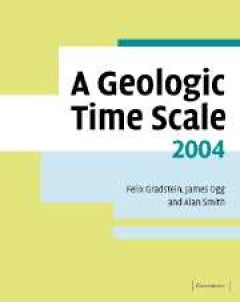
A Geologic Time Scale 2004
An international team of over forty stratigraphic experts have helped to build the most up-to-date international stratigraphic framework for the Precambrian and Phanerozoic. This successor to A Geologic Time Scale 1989 by W. Brian Harland et al. (CUP 0521 387655) begins with an introduction to the theory and methodology behind the construction of the new time scale. The main part of the book is…
- Edition
- -
- ISBN/ISSN
- 9780511536045
- Collation
- -
- Series Title
- -
- Call Number
- -

A Geognostical Essay on the Superposition of Rocks in Both Hemispheres
The explorer and multi-disciplinary scientist Alexander von Humboldt (1769–1859) was a prominent figure in the European scientific community of the eighteenth and nineteenth centuries and the first to make a scientific survey of South and Central America. His travels alone brought him widespread recognition, but the extensive field notes and research he undertook were developed further on his…
- Edition
- -
- ISBN/ISSN
- 9781139226875
- Collation
- -
- Series Title
- Cambridge Library Collection - Earth Science
- Call Number
- -
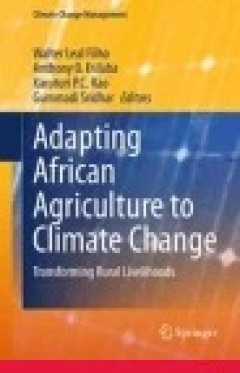
Adapting African Agriculture to Climate Change: Transforming Rural Livelihoods
This book summarizes the evidence from different African countries about the local impacts of climate change, and how farmers are coping with current climate risks. The different contributors show how agricultural systems in developing countries are affected by climate changes and how communities prepare and adapt to these changes.
- Edition
- Ed. 1
- ISBN/ISSN
- 978-3-319-13000-2
- Collation
- XI, 233
- Series Title
- Climate Change Management
- Call Number
- 551.6 ADA a
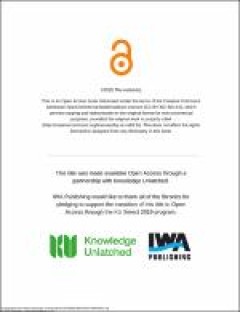
Computational Hydraulics
Computational Hydraulics introduces the concept of modeling and the contribution of numerical methods and numerical analysis to modeling. It provides a concise and comprehensive description of the basic hydraulic principles, and the problems addressed by these principles in the aquatic environment. Flow equations, numerical and analytical solutions are included. The necessary steps for building…
- Edition
- -
- ISBN/ISSN
- 9781780400457
- Collation
- -
- Series Title
- -
- Call Number
- -
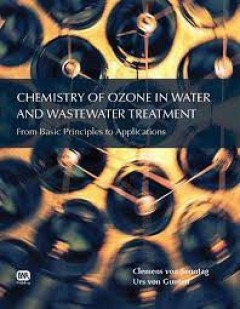
Chemistry of Ozone in Water and Wastewater Treatment
Even though ozone has been applied for a long time for disinfection and oxidation in water treatment, there is lack of critical information related to transformation of organic compounds. This has become more important in recent years, because there is considerable concern about the formation of potentially harmful degradation products as well as oxidation products from the reaction with the ma…
- Edition
- -
- ISBN/ISSN
- 9781780400839
- Collation
- -
- Series Title
- -
- Call Number
- -
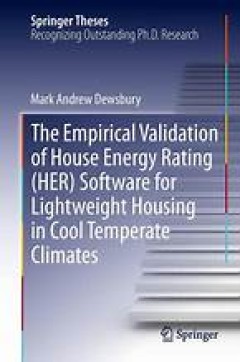
The Empirical Validation of House Energy Rating (HER) Software for Lightweigh…
This book reports on the first empirical validation of “AccuRate,” Australia’s national benchmark software tool for house energy ratings. The validation was conducted by the University of Tasmania in collaboration with Forest and Wood Products Australia, the Australian Government, the CSIRO and industry partners. The study presented here describes the results of graphical and statistical …
- Edition
- 1
- ISBN/ISSN
- 978-3-319-14337-8
- Collation
- XIX, 344, 236 b/w illustrations, 60 illustrations in colour
- Series Title
- Springer Theses
- Call Number
- -
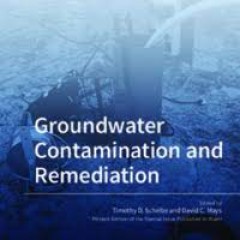
Groundwater Contamination and Remediation
This Special Issue of Water brings together 10 studies on groundwater contamination and remediation. Common themes include practical techniques for plume identification and delineation, the central role of subsurface processes, the pervasiveness of non-Fickian transport, and the importance of bacterial communities in the broader context of biogeochemistry.
- Edition
- -
- ISBN/ISSN
- 978-3-03897-430-7
- Collation
- -
- Series Title
- -
- Call Number
- 628 GRO
 Computer Science, Information & General Works
Computer Science, Information & General Works  Philosophy & Psychology
Philosophy & Psychology  Religion
Religion  Social Sciences
Social Sciences  Language
Language  Pure Science
Pure Science  Applied Sciences
Applied Sciences  Art & Recreation
Art & Recreation  Literature
Literature  History & Geography
History & Geography